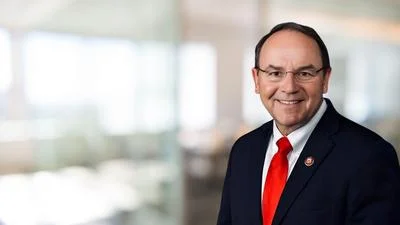Will Rosignal Digital Outreach Associate at the Badger Institute | badgerinstitute.org
Will Rosignal Digital Outreach Associate at the Badger Institute | badgerinstitute.org
The odds of a UW-Madison pre-tenured professor’s political donation going to a Republican are only 1 in 490, according to an analysis by outgoing UW political science professor Ryan Owens and his colleague, Alex Tahk. In the social sciences and humanities, where professors’ viewpoints on politics and culture have more bearing on lectures than fields like engineering, the odds fall to just 1 in 530.
The numbers back up comments Owens made in a recent interview with the Badger Institute. He discussed the skewed ideological climate at Wisconsin's flagship university and described the atmosphere as full of an omnipresent “left-wing, dogmatic orthodoxy.” Owens substantiated this with another statistic: over 99% of political dollars contributed by UW faculty went to Democrats and left-wing groups over the past decade.
Owens and Tahk analyzed data from the Federal Election Commission on contributions to candidates or PACs between 2011 and 2022. Their study examined all UW faculty donations except those from medical school faculty.
Owens' and Tahk's study has limitations. It might be that conservative professors are less likely to make political donations due to public accessibility of records, potentially underestimating the true ratio of conservatives to progressives among faculty.
However, this does not absolve the university. Rather, it indicates a collegiate atmosphere where only one side of the ideological spectrum feels safe openly expressing beliefs and supporting political causes. If conservatives feel they must remain silent for fear of being outed, students are equally disadvantaged.
Owens mentioned how students told him that before taking his course, they never had a professor show both sides of issues. Owens would assign readings from both Reagan’s and Obama’s addresses.
The university's lopsided ideological environment affects other areas of institution life. Owens referred to “double standards” faced by conservative students when working with administration to host events. Conservatives must ensure every detail is perfect and engage in multiple meetings with university administration and police to prevent event disruptions. Conversely, liberal student groups reportedly face fewer procedural hurdles.
Although leaving his position, Owens recommended several measures for improving the school's ideological climate. He suggested hiring more individuals from private-sector backgrounds for teaching positions among other reforms.
Ultimately, lasting solutions will require leadership by governors appointing Board of Regents members committed to diversity of opinion and addressing the university's skewed ideological landscape.
Wyatt Eichholz is the Policy and Legislative Associate at the Badger Institute. Permission to reprint is granted as long as the author and Badger Institute are properly cited.
___






 Alerts Sign-up
Alerts Sign-up